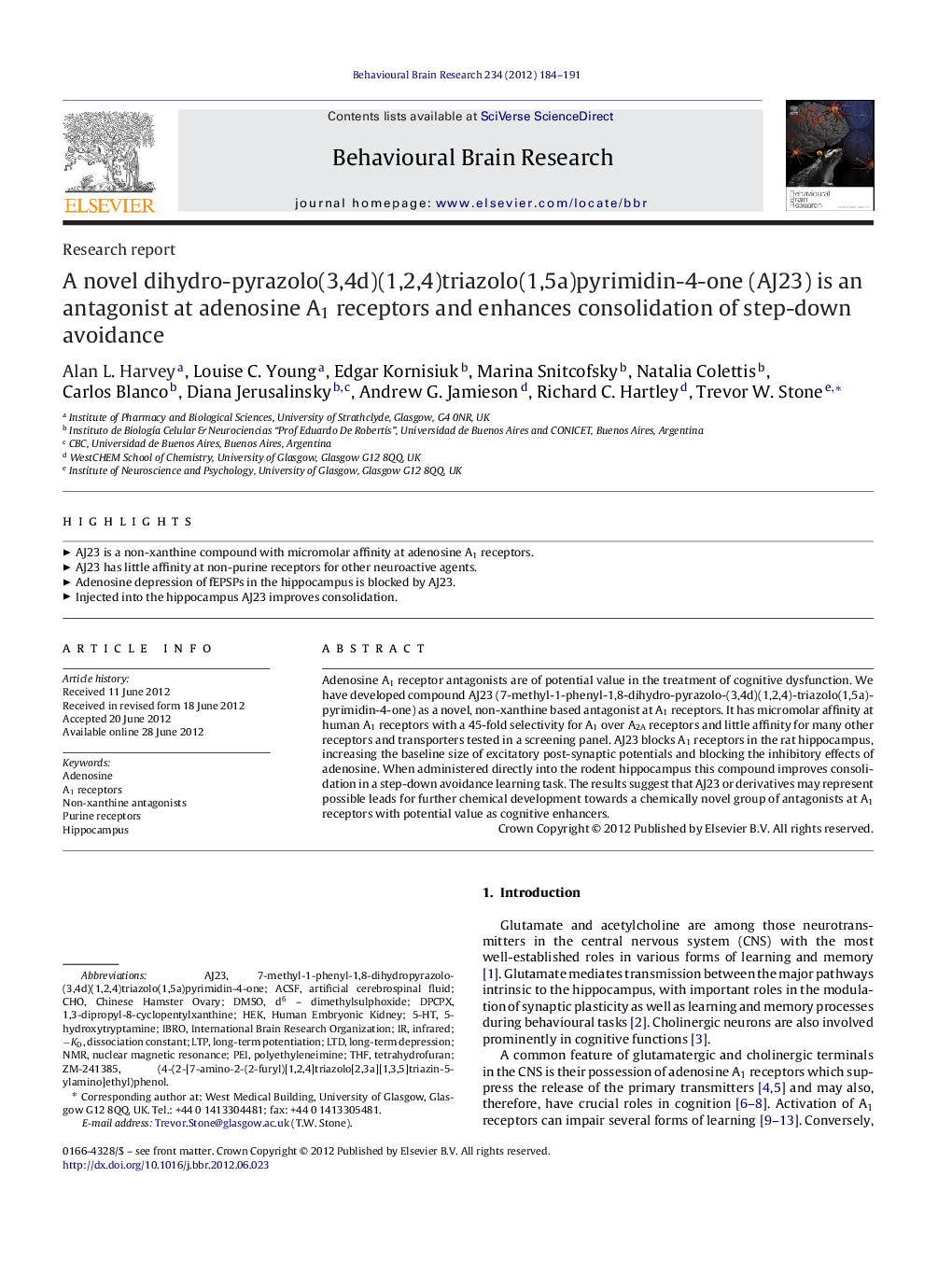| Article ID | Journal | Published Year | Pages | File Type |
|---|---|---|---|---|
| 4312946 | Behavioural Brain Research | 2012 | 8 Pages |
Adenosine A1 receptor antagonists are of potential value in the treatment of cognitive dysfunction. We have developed compound AJ23 (7-methyl-1-phenyl-1,8-dihydro-pyrazolo-(3,4d)(1,2,4)-triazolo(1,5a)-pyrimidin-4-one) as a novel, non-xanthine based antagonist at A1 receptors. It has micromolar affinity at human A1 receptors with a 45-fold selectivity for A1 over A2A receptors and little affinity for many other receptors and transporters tested in a screening panel. AJ23 blocks A1 receptors in the rat hippocampus, increasing the baseline size of excitatory post-synaptic potentials and blocking the inhibitory effects of adenosine. When administered directly into the rodent hippocampus this compound improves consolidation in a step-down avoidance learning task. The results suggest that AJ23 or derivatives may represent possible leads for further chemical development towards a chemically novel group of antagonists at A1 receptors with potential value as cognitive enhancers.
► AJ23 is a non-xanthine compound with micromolar affinity at adenosine A1 receptors. ► AJ23 has little affinity at non-purine receptors for other neuroactive agents. ► Adenosine depression of fEPSPs in the hippocampus is blocked by AJ23. ► Injected into the hippocampus AJ23 improves consolidation.
